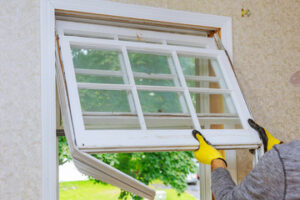Junk Removal Services
Junk removal companies typically take various types of junk, from furniture to appliances and even hot tubs. However, they won’t haul away any chemical hazards or biohazards.
If you’re looking for a junk removal service, prepare by listing the items you need to be removed. This will help you get a more accurate quote. Click Here to learn more.

Junk removal services are a great solution for those who need help getting rid of unwanted items. They can take care of all the heavy lifting and proper disposal of hazardous wastes, saving you time and money. They also recycle or donate items that can be reused, which reduces the amount of waste that ends up in landfills. In addition, junk removal services can also help you declutter your home and improve its overall function and aesthetics.
When choosing a junk removal service, it is important to consider their reputation, safety and recycling procedures, price, and location. You should look for a company that has a good customer review and is licensed and insured. Also, look for a company that offers free on-site estimates and has competitive pricing.
Most people don’t have the space or means to haul large, bulky junk items or bags of clutter away themselves. Moreover, a messy house or workplace can be a health hazard and can cause accidents. In addition, cluttered spaces can make it difficult to find things and create an unprofessional impression on visitors.
Whether you need to clear out your garage after a home remodel or clean up the aftermath of an estate sale, junk removal can be a lifesaver. With the help of a junk removal company, you can quickly and easily get rid of unwanted clutter and restore your home or office to its original state. These professionals can even give you tips for preventing future junk buildup and make sure that your items are recycled properly.
Many items in your home may seem useless, but they have a lot of value to those who need them. Junk removal companies can sort through your junk and remove valuables that can be donated to charity organizations. This can save you time and money while doing good for the community. In addition, these companies can recycle electronics and other materials that are no longer functional, helping to keep the environment safe and clean. In addition, they can offer storage and dumpster rental options to make the process easier for you.
Junk removal services are a great way to get rid of unwanted items, but the cost can be expensive. This is because junk removal companies have to factor in various costs such as labor, equipment, and disposal fees when calculating their pricing. In addition, the size of the junk and the location of the pickup site are also important factors in determining the price. For example, larger items require more manpower to move and may incur higher disposal costs than smaller items.
Junking out a whole house can be an overwhelming task, especially when there are many different rooms and floors to clean. However, with the help of junk removal specialists, homeowners can save time and effort by focusing on one room at a time. Moreover, the company can dispose of any unwanted or broken items that are no longer useful. Junk removal companies typically charge per item picked up, but they will want to have a good idea of what is being removed before providing a quote. Some of them will ask customers to send over pictures or videos of the junk that needs to be hauled away before giving a quote.
Some types of junk require special handling and sorting, which increases the overall cost of the junk removal service. For example, electronic waste (e-waste) has to be disposed of differently from regular garbage because it contains dangerous chemicals. Some junk removal companies may also charge extra for removing hazardous materials like aerosol cans, lead-based paint, and old TVs with cathode ray tubes.
Another consideration is whether a junk removal company offers hourly or project-based pricing. Hourly pricing is more flexible, but it can be difficult to maintain profitability if the job takes longer than expected. On the other hand, project-based pricing can be more predictable and easier for companies to manage.
Most junk removal companies will recycle or donate as much of the junk that they pick up as possible. This helps reduce the amount of trash that ends up in landfills and gives useful items to people who need them. However, not all junk removal companies are created equal, so you should do your research to find out what type of recycling or donation policies they have in place.
Junk removal services are a great way to clean out your home or office. They will haul away bulky items that are too large to fit in your trash can. The companies use eco-friendly disposal methods and offer competitive prices. Many of these services also offer pickup and delivery, which is a convenience for customers who don’t have a truck. However, there are some items that junk removal services won’t take, such as hazardous materials and chemicals. You should always check with the company to see what they will accept before hiring them.
If you want to start a junk removal service, make sure you understand your local regulations and licensing requirements. You will need an employer identification number (EIN) from the IRS, a business license in your state, and possibly a permit or license for transporting large loads. You should also consider registering with your local recycling agency. This will ensure your waste is recycled as much as possible.
You should also choose a payment method that works for your budget. Decide whether you will charge by weight or time, and calculate your monthly overhead. Then divide your overhead expenses by the number of billable hours and apply the cost per hour to each job.
When choosing a junk removal company, it’s important to find one with an excellent reputation and good customer service. A reputable company will have insurance coverage in case of damage to your property. Moreover, they will be more likely to return your call quickly and answer any questions you may have.
A junk removal company will help you get rid of old and broken items that are cluttering your space. They can also dispose of electronics, yard waste, and e-waste. They will also recycle or donate items to charity. Some junk removal companies will even pay you for your items if they are in good condition.
Junk removal companies have years of experience in the industry. They offer residential and commercial junk removal services for both homeowners and businesses. They can handle a variety of items, including furniture, hot tubs, and appliances. They can also remove a wide range of hazardous chemicals, including lead and asbestos, and help people with hoarding issues. They also offer a variety of other services, such as construction cleanup and eviction cleaning.
Junk removal services help clean up cluttered spaces, providing a more functional and aesthetic appearance. They also ensure that your junk is disposed of in a safe manner. This is especially important when dealing with hazardous materials such as asbestos, lead, and other toxic substances. Junk removal companies can save you a lot of time and money. They can also save you the cost of renting a truck and fuel, as well as the cost of disposing of waste at a landfill.
Professional junk removal services recycle as much of your junk as possible, reducing the amount of trash sent to landfills. They also separate items that can be used again, such as clothing and unused furniture. These items are donated to charity organizations or sold, ensuring that they go to people who need them. This reduces waste in landfills, which prevents harmful toxins from seeping into the soil.
Aside from reducing clutter, junk removal companies also provide other benefits for homeowners and businesses. Cluttered spaces can be unsafe and difficult to navigate. A cluttered environment can make a business look unprofessional and can have a negative impact on customer satisfaction. Junk removal services can make your home or office more organized and attractive. They can also help you save money by avoiding costly repairs caused by a cluttered space.
When hiring junk removal services, it is important to choose a company that has a good reputation and is licensed and insured. In addition, they should offer flexible scheduling and affordable pricing. They should also have the proper equipment and skills to handle large or heavy items. A reputable junk removal company will provide you with a free estimate and a detailed description of the services they offer.
Junk removal services are an essential service for homes and businesses that need to get rid of unwanted items. They can be hired to remove old furniture, electronics, and appliances. They can also help clean up a property after a flood or fire. They can also remove debris from construction or landscaping projects. These services are available at a reasonable price and can help you avoid costly repairs or fines.



